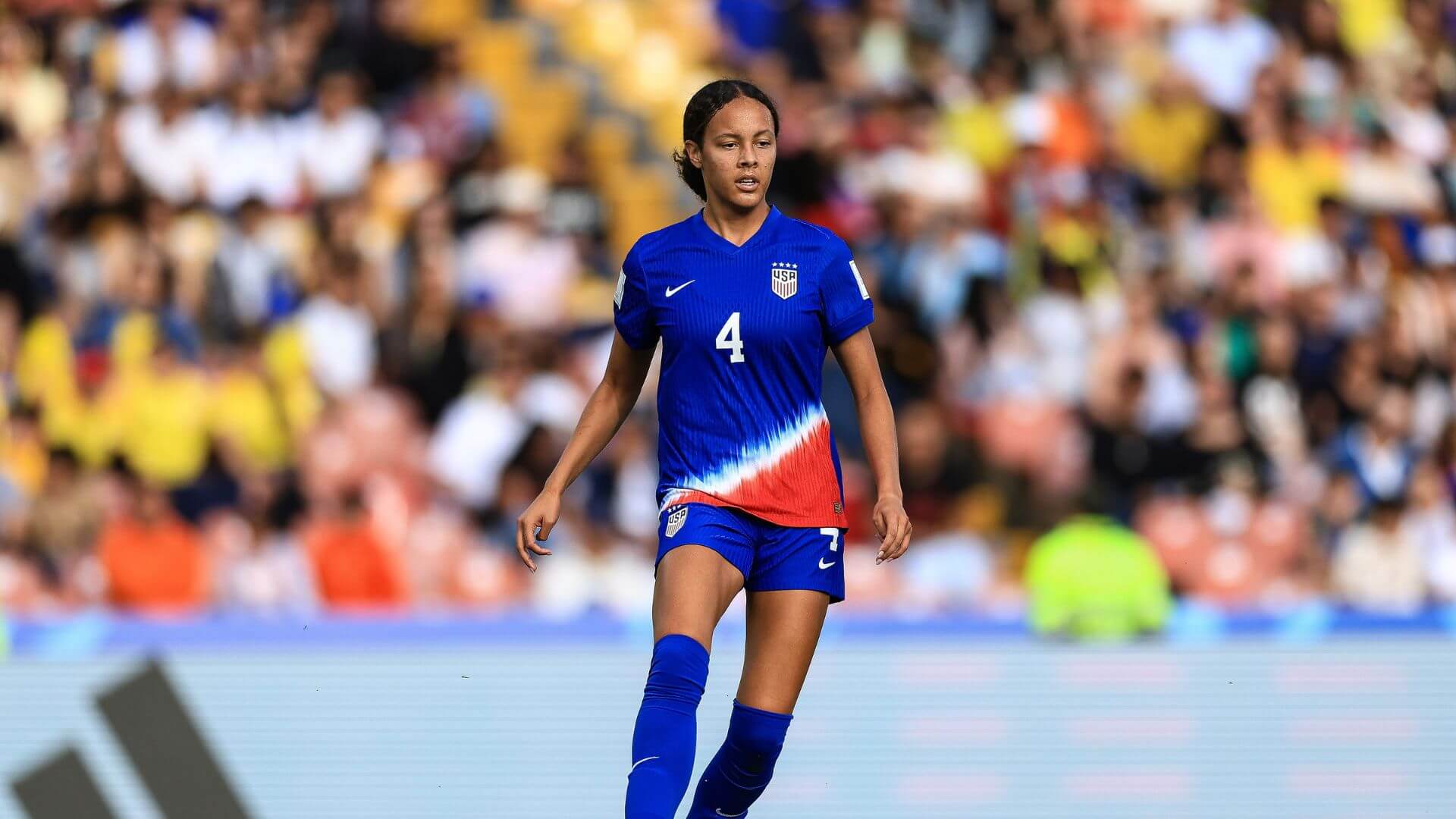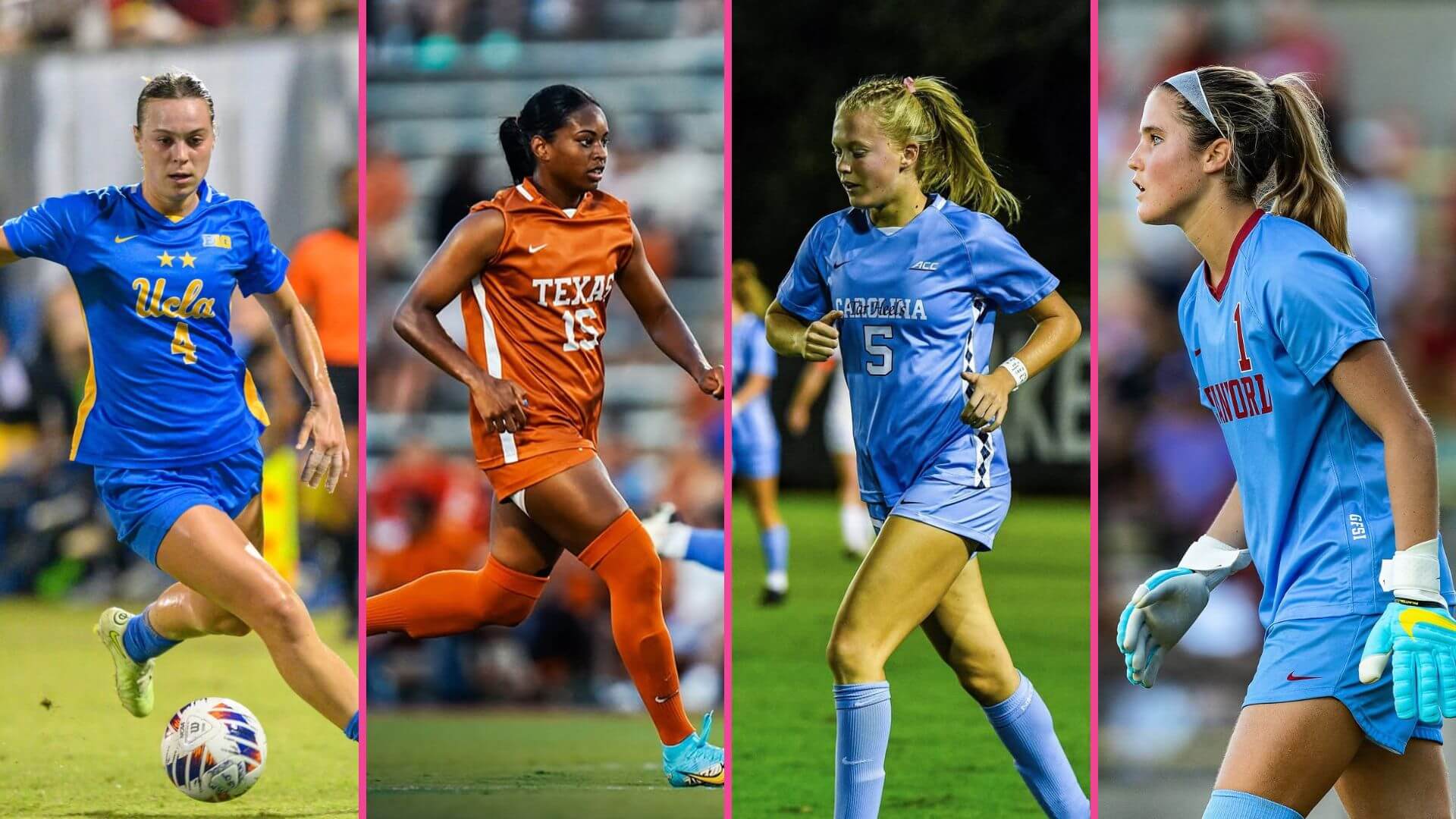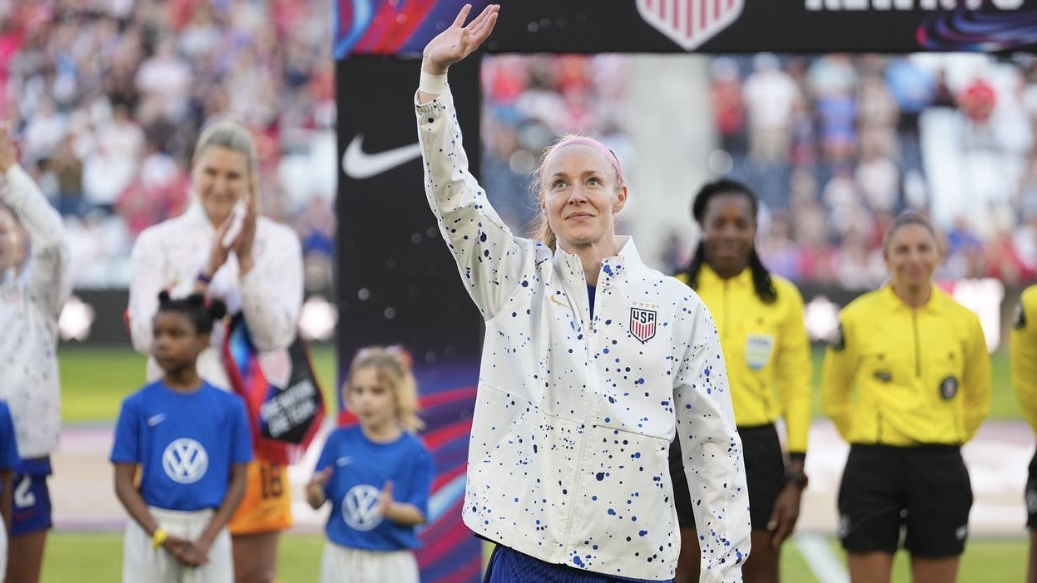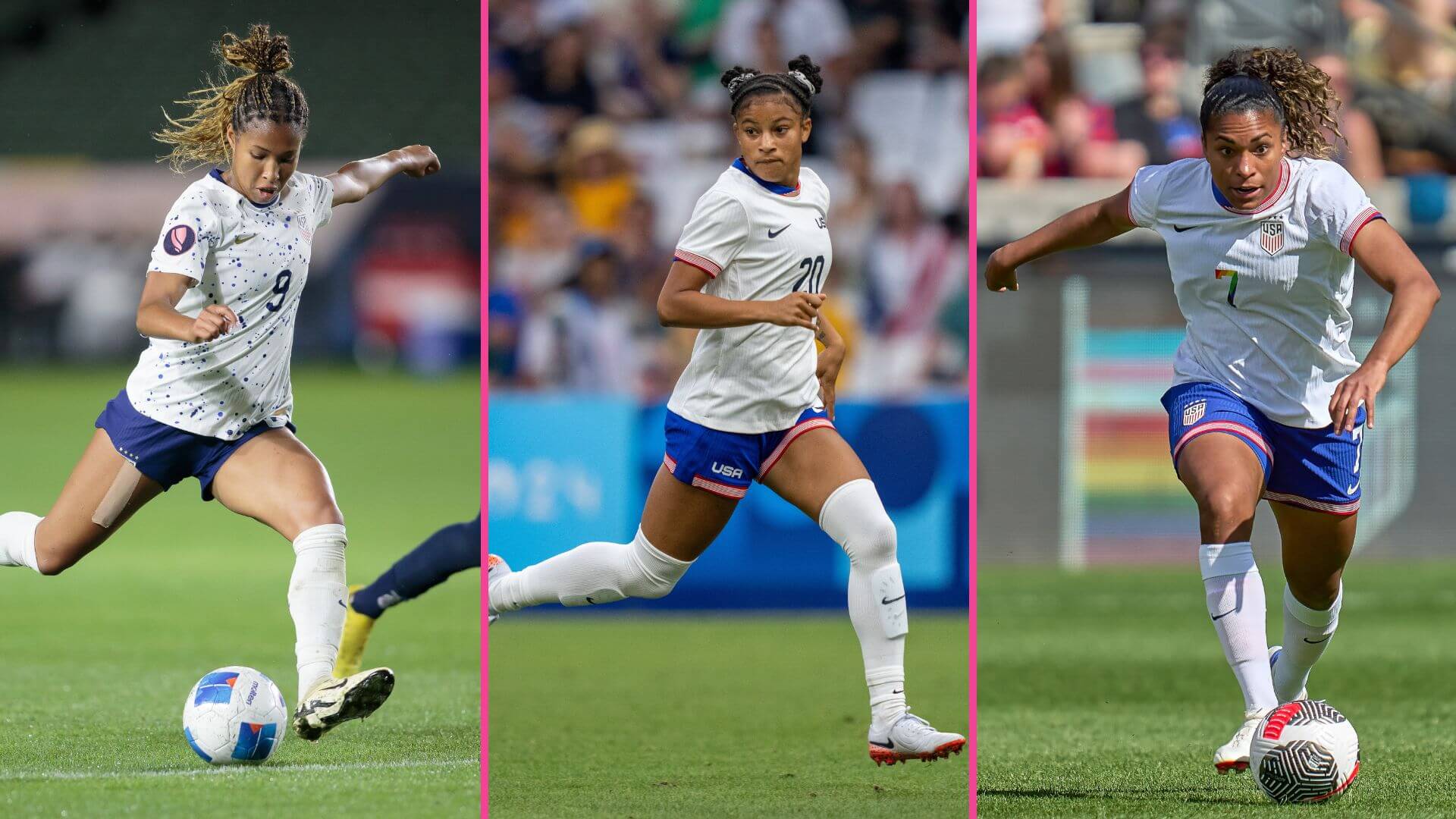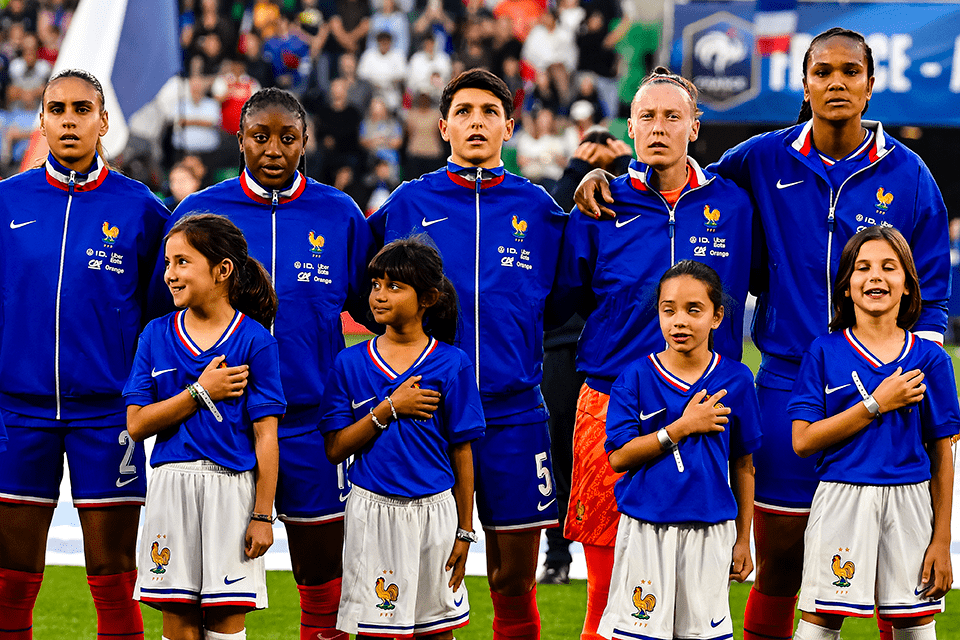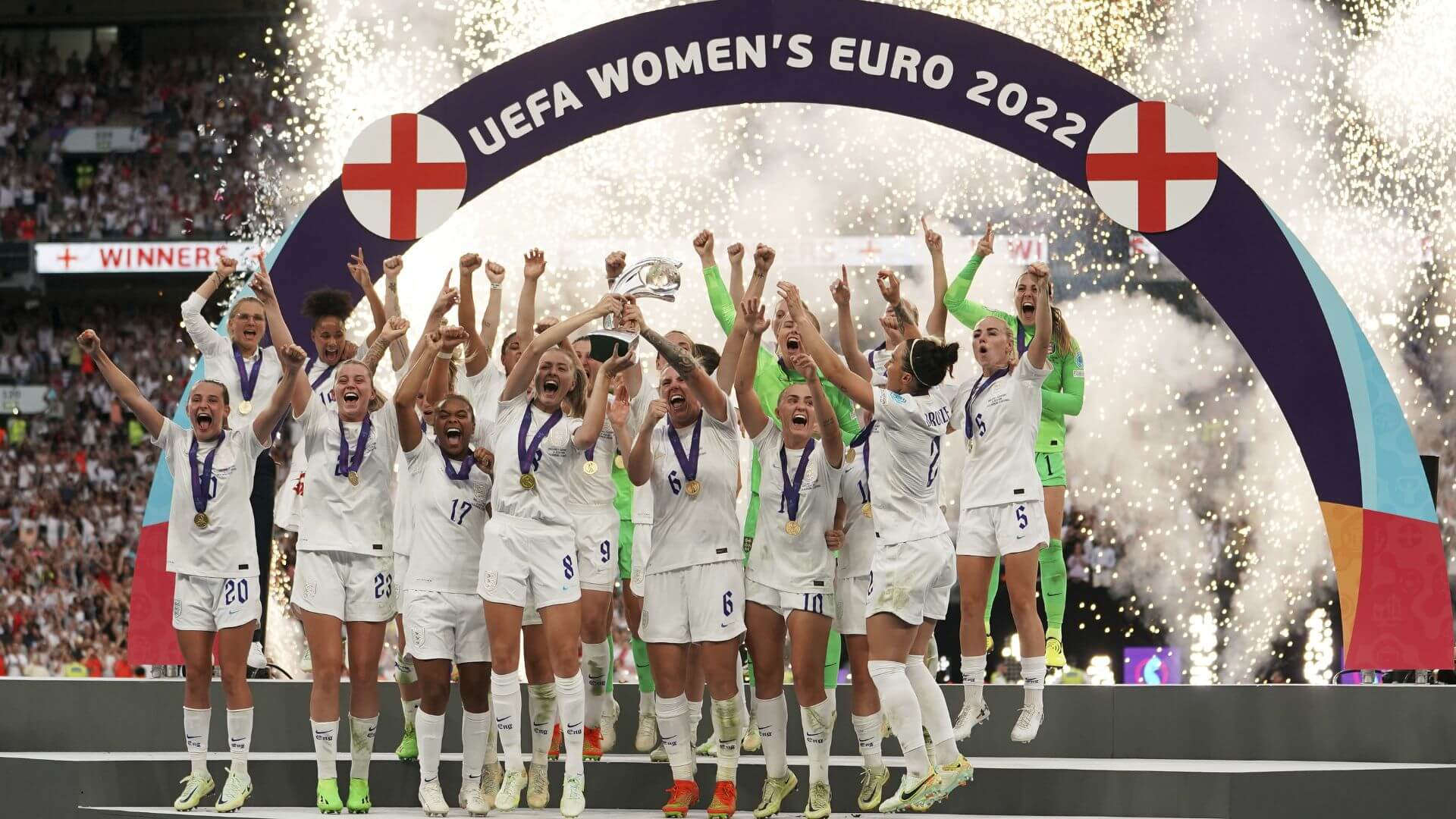Playmakers: Get to Know the Project Inspiring Girl Footballers Across Europe
Just last week, I stepped onto the pitch to play alongside our men’s team in a friendly tournament. To my dismay, their coach told me, “oh great, maybe you can play when we face a weak team.” How is it that a coach who has no knowledge of my skill level is going to assume that I’m not good enough to compete? I’m relatively accustomed to these sorts of comments, but it never ceases to frustrate me. What’s more frustrating is realizing that this attitude extends to many female athletes, contributing to the alarming dropout rates among girls in sports, which are double that of boys by the age of 14.
The reasons behind these dropout rates are multifaceted, encompassing factors such as limited access, financial constraints, ingrained societal stereotypes, a dearth of role models, and negative experiences within the sports realm. For those unfamiliar, in many European countries, co-ed teams are the norm for players up to approximately 12 years old. However, what often happens is that there are only one or two girls and 15 boys on the team, presenting an immensely challenging environment. Consequently, it’s no surprise that many girls choose to step away from sports, citing issues ranging from inadequate support to a pervasive sense of unwelcomeness.
On the other hand, we understand the immense benefits of sports – they foster confidence, instill values, forge friendships, and promote a healthy lifestyle. So why should girls be deprived of these opportunities? How can we transform football spaces into inclusive environments that welcome and empower girls instead of pushing them away from the pitch?
That’s where Playmakers comes in. UEFA’s football program is designed specifically for 5-8-year-old girls. Its methodology integrates movement, play, and storytelling to inspire friendships, grow confidence, and encourage a healthy lifestyle. I had the pleasure of speaking with UEFA directly about the program.
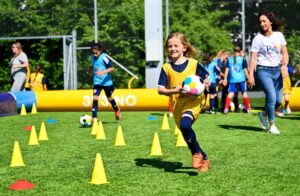
What is the origin of Playmakers?
UEFA Playmakers was launched by UEFA in a partnership with Disney in February 2020. The program was shaped by academic research commissioned by UEFA from Leeds Beckett University to identify the best ways to motivate young girls (aged 5-8) to play football. The program is a result of a knowledge-transfer partnership with the English FA who run the “Shooting Stars” program in partnership with Disney.
This program has shown incredible growth. Seven countries, including Scotland, Norway, Belgium, Austria, Poland, Romania and Serbia, participated in an initial pilot phase in February 2020, and since then, the program has grown to 47 countries, with sessions being held in 4,600 locations including football clubs, schools, and community centers across Europe.
What are the primary goals of Playmakers?
The primary goal of UEFA Playmakers is to inspire a whole new generation of girls to take their first steps into the world of football at a younger age. This is a key aspect of UEFA’s first ever women’s football strategy, Time for Action, aimed to double the number of female players in Europe by 2024.
I see that it’s not only about increasing access to sports for girls but also about building them into leaders who can later become coaches and/or play a bigger role in the football industry. What are the ways in which Playmakers sees those projects through?
UEFA Playmakers provides a fun, safe, and non-competitive environment for girls to play and enjoy the game. Coaches and parents report significant improvements in the girls’ confidence as a result of participating, demonstrating that UEFA Playmakers is providing life skills as well as football skills to the participants.
The program has trained over 6,000 UEFA Playmakers coaches, two-thirds of whom are female, and 43% have no prior coaching experience. This ensures that UEFA Playmakers is providing a pathway for coaches and players to develop in the game.

In what ways do Playmakers collaborate with local communities, schools, and football clubs to ensure the sustainability and impact of its projects?
Each National Association is responsible for running UEFA Playmakers in its respective country, so the approaches will vary from country to country. The sessions are run in UEFA Playmakers centers, which can be football clubs, sports clubs, schools, or youth clubs.
Many of our national associations have unique partnerships with these organizations, ensuring the program is accessible to girls ages 5-8. For example, the Romanian Ministry of Education works in collaboration with the federation to ensure Playmakers is offered to girls after school. Teachers undertake coach education training and have helped bring over 6,800 girls through the program since 2020.
Considering the diverse backgrounds and experiences of the girls involved in Playmakers, how does the program ensure inclusivity and cultural sensitivity in its approach?
National Associations work in many ways to ensure UEFA Playmakers is inclusive. In Sweden, a pilot scheme was run to open two centers specifically for children with disabilities. The pilot was thoroughly evaluated and found to provide opportunities to play football that didn’t exist before while helping to develop key social and life skills. Above all, the children within the program had fun! This pilot scheme can help provide a template for other National Associations to make their UEFA Playmakers programs more inclusive.
Overall, UEFA Playmakers is playing a key role in ensuring that girls across Europe fall in love with football. Its impact is palpable, evident in the increasing number of girls being introduced to the sport, the innovative methods employed to welcome them into the fold, and the tangible growth in their football skills and self-confidence.
UEFA told me about Maria, a player who’s gained significantly from the Playmakers program. Through Playmakers, she has not only become physically and mentally stronger but has also developed a profound interest in football, demonstrating a newfound enthusiasm and readiness to participate in teams or clubs. In other words, by effectively creating new forms of entry and bolstering retention rates among women athletes, Playmakers is making significant strides in fostering inclusivity and diversity within the football community. That’s to say, through the help of Playmakers, women’s football will only continue to grow.
_
GIRLS SOCCER NETWORK: YOUR SOURCE FOR GIRLS SOCCER NEWS




